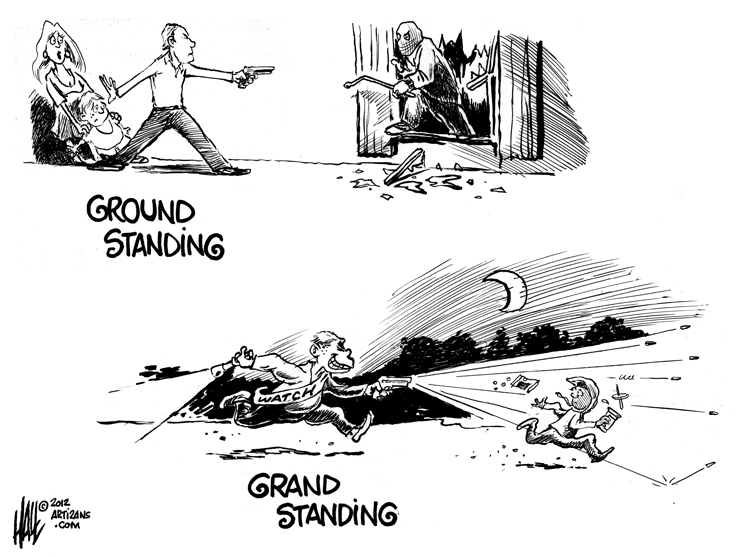G
Guns Guns Guns
Guest

The shooting death of 17-year-old Trayvon Martin highlights ambiguity and the potential unintended consequences of Florida's controversial "Stand Your Ground" law, according to a lawyer speaking to a task force examining Florida's investigation of the legislation.
Buddy Jacobs, general counsel for the Florida Prosecuting Attorneys Association, told the 18-member panel "Our conclusion is that this law ought to be repealed. We don't think it's a thing we can tweak."
The 2005 law is under nationwide scrutiny following the Feb. 26 shooting in Sanford of the unarmed, 17-year-old Martin by neighborhood watch volunteer George Zimmerman.
Martin's family and supporters want Zimmerman arrested, but police say they were prevented from doing so because of the law.
The task force organizer, state Sen. Chris Smith of Fort Lauderdale, said the 7-year-old law has been controversial in past cases and likely will be again long after the Martin case has faded from national attention.
At least 20 other states have similar Stand Your Ground laws.


